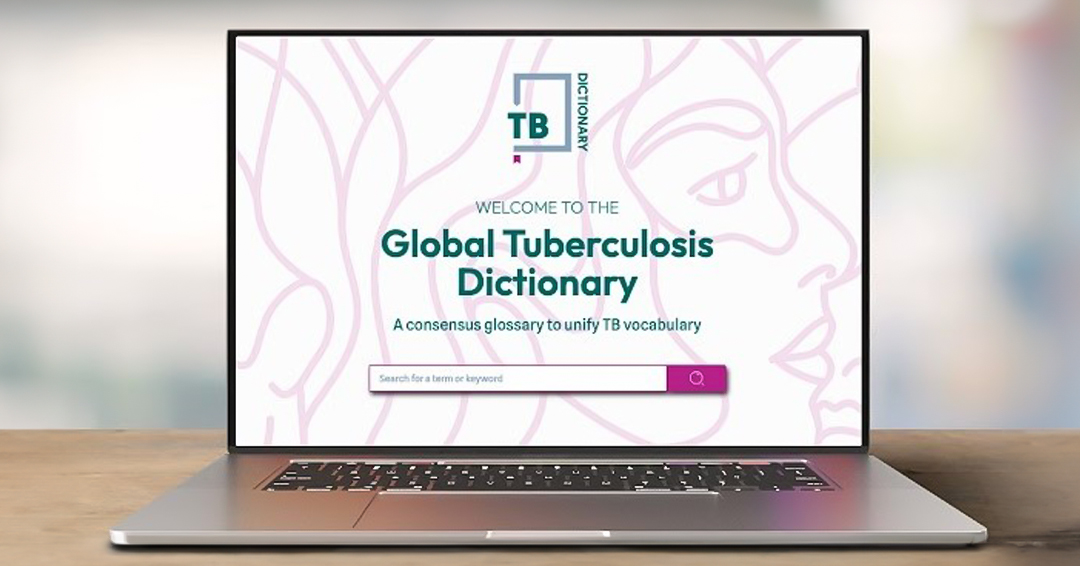
The Lancet Global Health highlights the launch of the dictionary created in part at the RI-MUHC.
This year, World TB Day marked the launch of a new tool to improve international communication and collaboration in the field of TB: the Global Tuberculosis Dictionary. Co-edited by Dr. Marcel Behr, MD, of the Research Institute of the McGill University Health Centre (RI-MUHC), and Dr. Alberto Garcia Basteiro, MD, PhD, of the Barcelona Institute for Global Health, the dictionary aims to unify TB-related terminology and promote clearer communication by providing a common language for researchers, policy-makers, donors and affected communities. This work is the subject of an article published on March 22, 2024, in the journal The Lancet Global Health.
“Tuberculosis is an old disease and an important disease, therefore, it comes with a lot of old words and a lot of new research. As a result, there are words that are used by different people to mean different concepts, and concepts that are being developed by different people, expressed with even more new words, explains Dr. Behr, co-editor of the TB dictionary, a Senior Scientist at the RI-MUHC, and a Professor of Medicine at McGill University, who was the Founding Director of the McGill International TB Centre. “To get everyone talking the same language, from scientists to clinicians to policy-makers, we thought it was important to create a comprehensive dictionary of TB.”
Despite being an ancient disease, TB remains a major global challenge that has caused 1.3 million deaths in 2022 alone. According to the co-editors of the Global TB Dictionary, harmonizing TB terminology could aid global efforts in TB control, creating new efficiencies for advancing knowledge through research, and translating policy into practice.
Unifying terms and definitions through a consensus process
A diverse group of researchers, public health officials and TB survivors contributed to this first edition of the Global TB Dictionary. The development process, based on a systematic approach and guided by evidence and expert review, involved a comprehensive review of TB-related literature, including publications from the Global TB Programme (WHO), the International Union Against Tuberculosis and Lung Disease (The Union), and the Centers for Disease Control and Prevention (CDC) in the United States. In addition, a systematic search of PubMed was conducted to identify articles discussing TB terms and concepts or containing glossaries. Expert input from a panel of TB experts ensured the inclusion of relevant terms and definitions.
The dictionary underwent multiple review iterations, with terms and definitions assessed by multiple reviewers to ensure accuracy and coherence. Extensive discussion within the editorial team resolved discrepancies and ensured alignment with current scientific knowledge and non-stigmatizing language. Input from TB survivors further ensured that the language used in the dictionary was acceptable and inclusive.
“The dictionary has been developed in a strategic, comprehensive and patient-focused way. In addition to the highly esteemed group of TB experts, it was important to include TB survivors among the editorial team to ensure that the way we communicate about tuberculosis is widely accepted and appropriate for everyone in the TB community,” says Alberto García-Basteiro, ISGlobal researcher and co-editor of the dictionary.
The Global TB Dictionary will be regularly updated to reflect advances in TB research and the inclusion of new terms suggested by the TB community. Users can access the dictionary online and contribute suggestions for future editions, ensuring that it remains a dynamic and evolving resource.
To access the Global TB Dictionary and learn more about its methodology, please visit www.tbdictionary.org.
To learn more about the project, read the article published in The Lancet Global Health: A Global Tuberculosis Dictionary: unified terms and definitions for the field of tuberculosis.
DOI: https://doi.org/10.1016/S2214-109X(24)00083-4
